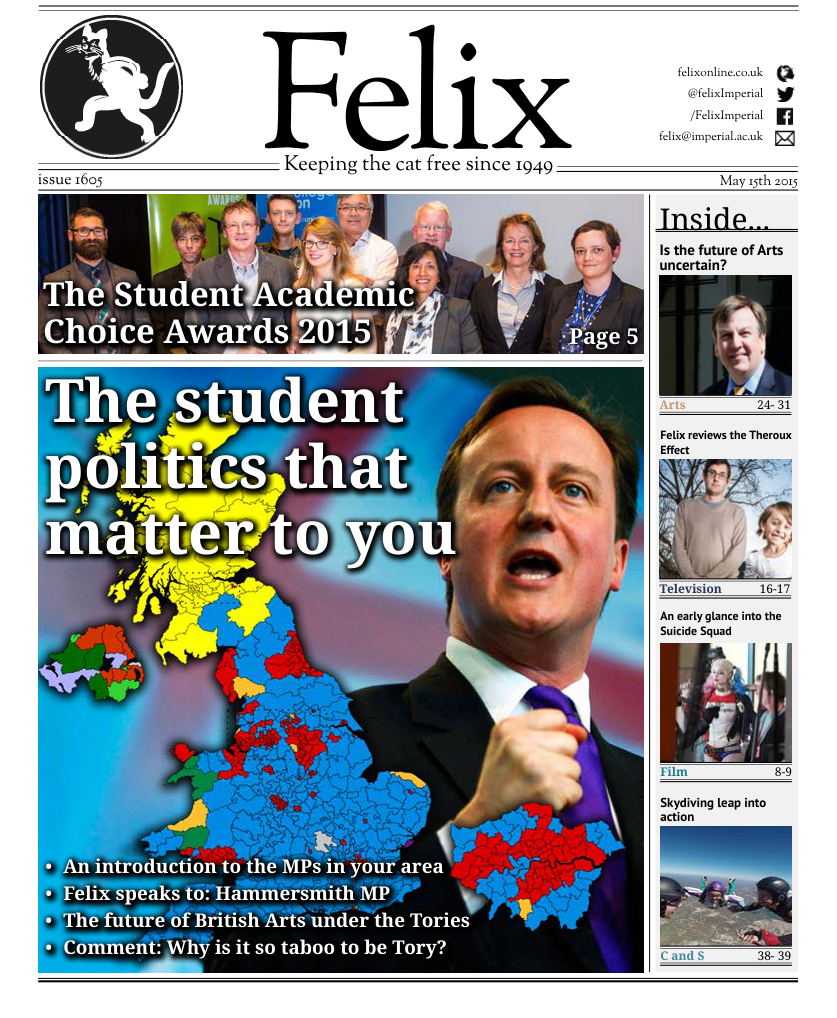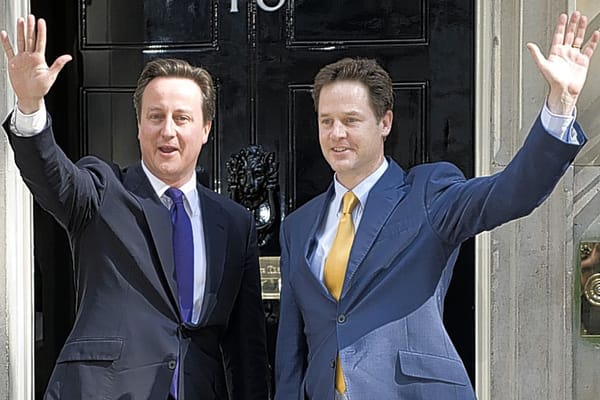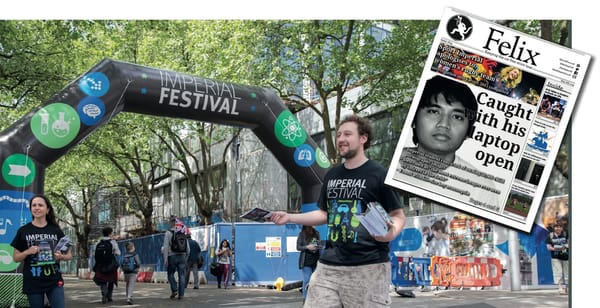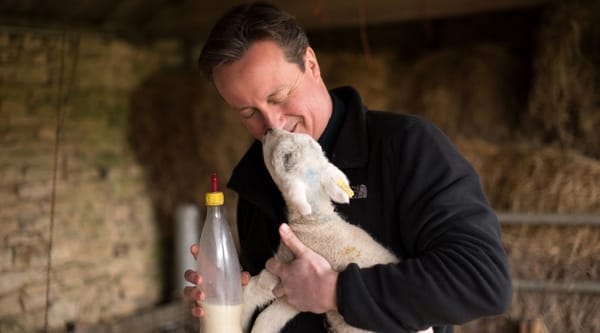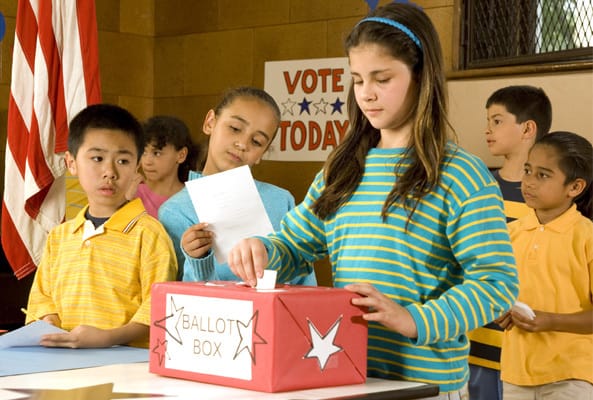Why is it so taboo to be Tory?
Social media has driven Conservatives to keep their views quiet
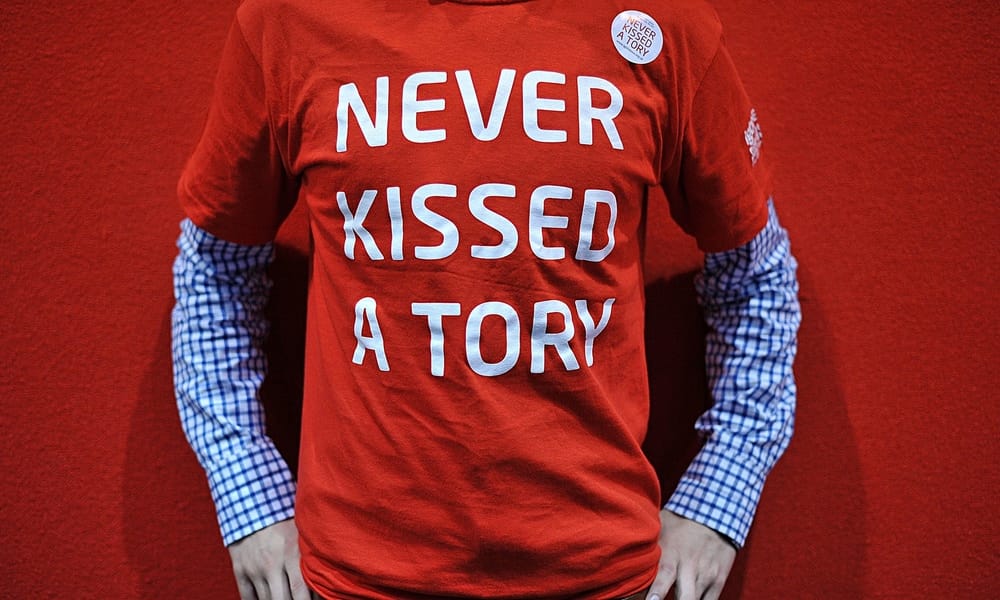
The General Election has come and gone, and the United Kingdom has democratically elected the Conservative Party into power for the next five years. 36.9% of the country voted for them, but if you look at the articles being plastered all over the internet and social media, you would have no idea that this was the case.
The Felix poll suggested that 35% of Imperial students were planning to vote Conservative. I’ve spoken to a lot of people about this election, and only one person has admitted to me that they voted Tory. But, they added as a caveat, it was because the Conservative MP in their Fulham consistency was really good. In Hammersmith, they told me, they would have voted Labour.
And this is at Imperial. It’s no secret that Imperial is one of the more conservative universities. Imperial was one of the only universities whose student union did not protest against the tuition fee rises, going so far as to voice support for them. The students themselves largely let the marches pass them by, probably out of a combination of apathy and right-wingedness. Although my only impression of the Imperial Conservative Society has been watching from the next stand at Fresher’s Fair as many people came along and bitched them out, we didn’t even have a Liberal Democrat counterpart until recently.
I grew up in a part of Wales where the Labour-Conservative battle seems very distant. Each of these parties takes no more than around 10% of the vote, with the remaining fight being between the Lib Dems and Plaid Cymru; voting Labour or Conservative is not a done thing. I remember in the 2010 election, as a second year Imperial student, I was surprised to find my friends were extremely vocal in their support of Labour. For me, the young person’s party was the Liberal Democrats, and it didn’t occur to me that you would vote for anyone else. In this election, it’s been a bit different. Obviously the Lib Dems have fallen out of favour, but I’m again surprised at how much everyone seems to have picked up Labour as their go-to party.
I watched the results of the General Election with a group of people from Imperial who all had different political ideas. One classed himself as a Conservative (but he voted Lib Dem, I’m not really sure how that works), some others still hopefully carried the Lib Dem banner, several were die-hard Labour, and one person voted Green. No one admitted to any support of the Conservatives, but given the general reaction to such confessions on social media, I wouldn’t admit it either.
I’ve seen people be torn to shreds for suggesting that rich people probably pay a bit more tax than poor people, I’ve seen statuses like, OMG all Tories unfriend me, Well done Great Britain, Another five years of oppression! Shops have displayed signs suggesting that Conservative voters should declare themselves and pay more tax. There have been protests and riots outside Whitehall. But this isn’t a few hard-right EDL or BNP supporters they’re protesting against here, it’s the largest single group of supporters in the country.
Some people I’m friends with on Facebook have been organising demonstrations against the current method of democratic selection. Under the first past the post system, everyone knows how it works, and votes accordingly. Under a different system, who knows if people would vote the same way? It’s true that FPTP has its flaws, but all the left-wing advocates of a more proportional representation seem to have forgotten that this would give us 82 UKIP MPs (if we kept the number of seats the same), and actually the “right-wing” Tories plus UKIP would still have about the same proportion.
Labour would lose seats, and we would have a much more fractured government. The Greens and Lib Dems would gain seats, of course, but at what cost? We would have a more liberal representation in Parliament, for sure, but what is going to be passed under that parliament? Surely true proportional representation, and the government that would result from other voting systems, will only lead to the passing of bills to be slowed and dragged out. This might prevent some really stupid things from happening – I think we can all agree that we want to keep the death penalty in the past and stay in the EU – but this might also prevent good things from happening, like the legalisation of gay marriage.
My News Feed is absolutely plastered with articles about how the entire country is going to go to the dogs now we have a majority Conservative government, how all the poor people are going to starve/suffer/commit suicide, and how every single person who voted Tory is an awful selfish human being who only cares about themself and their aspirational ideas of moving up the class system. Surely this can’t be true, a group that is nearly half the country must be diverse, and the policies which drew them must have some appeal.
I’ve seen articles about the rise of the ‘shy Tories’, who apparently hate themselves and are ashamed to admit their greedy, self-centred leanings. Charlie Brooker has compared voting Conservative to masturbating – you probably do it, but you definitely don’t talk about it. But is it because people are just shy and embarrassed, or has the barrage of self-righteous hate driven them to keep their views to themselves for self-preservation? Has being a Conservative voter become the ultimate taboo in our life of first world problems?
Or is all of this Facebook’s fault? It’s no secret that Facebook curates your News Feed, showing you exactly what they want you to see, based on interactions you’ve made with other posts. Even just hovering over an anti-Tory article while you read the headline might be enough to make Facebook think that you want to see more, and so you’re eventually hit with more posts than you can read about how the Conservative agenda is evil, demonising the poor, disabled and mentally ill. Maybe there are other posts on social media, you’re just not being shown them. Perhaps your social circle isn’t actually quite so homogenously angry lefties.
Unfortunately, this social media censorship only feeds into the impression that the parliament is unrepresentative, and drives discontent and frustration among those who are not in support of the elected government, who feel their voices aren’t being heard.
Ultimately, we have the government that we voted for under the system that we knew about going into the polling booths. It can’t be the case that everyone is happy with the result, but there is no denying that it represents the electorate in the way it was designed to. While you may disagree with the way people have voted, the angry holier-than-thou attitude is attacking a huge proportion of the country, and serves no purpose in improving this country. For this country to drift back to the centre, which – for the better or worse – I have no doubt that it will, more people need to be on board with their policies, and this isn’t going to happen if the current supporters of these ideas are constantly berating them and denouncing them as reprobate and loathsome.


